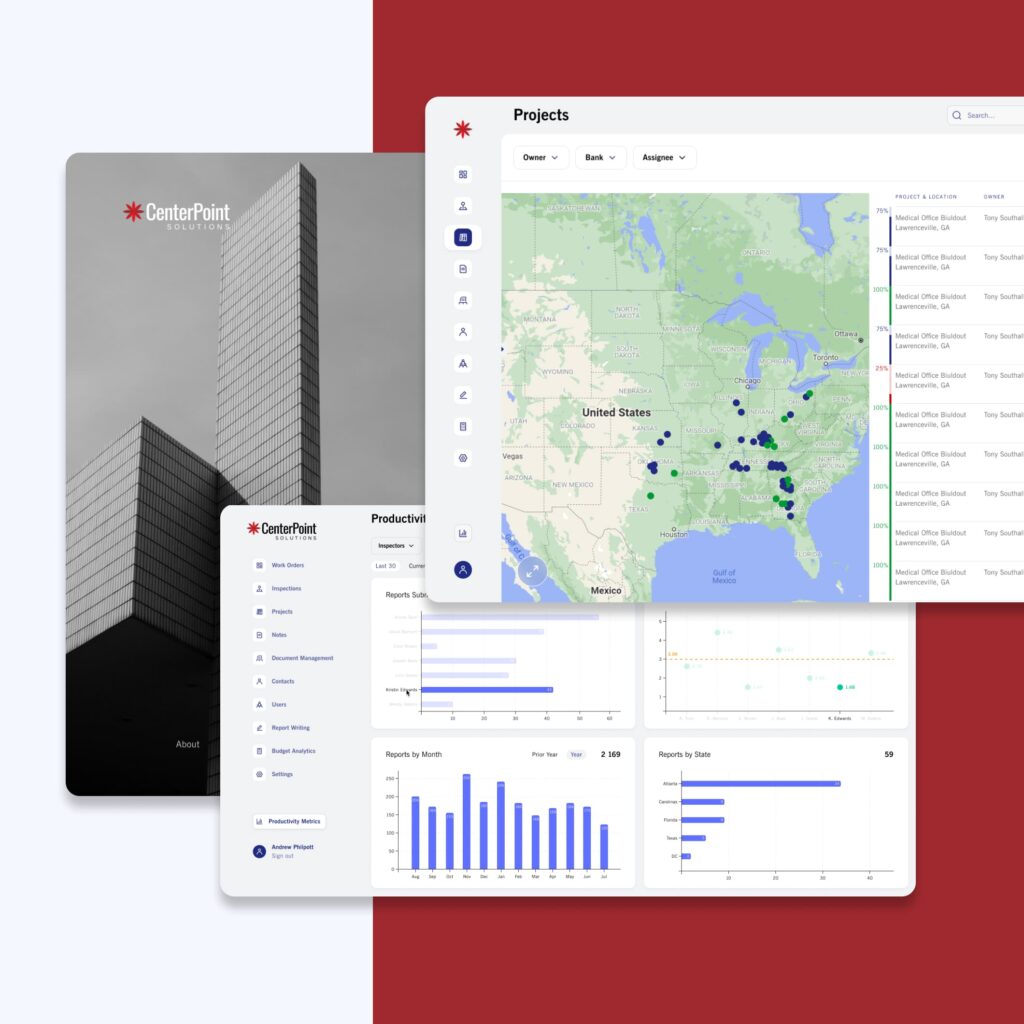Blog
Remote Software Developers: Tips on Finding and Hiring

I. Introduction
A. Overview of software development outsourcing and its popularity
Software development outsourcing has become a prevalent practice in the field of IT. Companies, both small startups and large enterprises, are increasingly turning to remote software developers to fulfill their development needs. In today’s article, we’ll give you all the tips and strategies you need to know in order to find, source, and hire remote developers.
The benefits of outsourcing custom software development, include access to a global talent pool, cost savings, and flexibility in scaling resources.
B. Reasons for hiring remote software developers.
There are several compelling reasons why companies are opting to hire remote software developers. One primary reason is the scarcity of skilled web developers available for in-house hiring, especially in regions like the US and Western Europe.

This shortage creates a highly competitive market for tech talent, making it challenging for companies to find and secure local developers.
Expanding their search globally is helping companies to tap into a larger pool of talent and overcome these challenges.
It is also important to note that employees today are demanding a better and more flexible work-life balance. According to Forbes, 71% of workers said that the remote work setup has been able to offer that much-needed balance. Hiring remote software developers is likely to provide you with a more motivated team.
C. Challenges faced even after hiring developers
While outsourcing software development presents a viable solution to talent scarcity, it also comes with its own set of challenges. Once developers are hired, companies must navigate through various hurdles to ensure successful collaboration and project outcomes.
These challenges may include communication barriers, managing cultural differences, coordinating across time zones, and maintaining effective collaboration and project management.
In this article, we will delve into the intricacies of finding and hiring remote software developers. We will explore different platforms and strategies that can help you identify and attract the best talent for your specific project requirements.
We will also provide insights and tips to address the challenges that arise when working with remote developers.
II. Developer Hiring Platforms
In this section, we will explore three prominent platforms: Upwork, Fiverr, and Guru. Each platform offers its own advantages and disadvantages, which we will examine in detail.
A. Upwork
Upwork is one of the largest freelancing platforms, connecting businesses with a vast pool of remote software developers. It offers numerous advantages for hiring remote talent:
1. Advantages of Upwork for hiring remote software developers
- Wide talent pool: Upwork boasts a large and diverse talent pool, providing access to developers with various skill sets and expertise.
- Flexible hiring options: Whether you need developers for short-term projects or long-term collaborations, Upwork offers flexibility in hiring arrangements.
- Transparent profiles and reviews: Upwork provides detailed profiles, including work history, skills, and client reviews. This enables you to assess a developer’s capabilities and reputation.
- Work monitoring tools: Upwork offers features that allow you to monitor and track the progress of projects, ensuring transparency and accountability.
- Secure payment system: Upwork provides a secure payment system, offering protection for both clients and developers.
2. Disadvantages of using Upwork
- High competition: With its large user base, Upwork attracts a significant number of developers, resulting in high competition for quality talent.
- Fee structure: Upwork charges fees for each transaction, which can impact the overall project costs.
- Quality variation: As Upwork has a wide talent pool, the quality of developers can vary. It requires careful vetting and selection to find the right fit.
B. Fiverr
Fiverr is another popular freelancing platform known for its diverse range of services, including software development. Consider the following advantages and disadvantages of hiring remote software developers on Fiverr:
1. Advantages of Fiverr for hiring remote software developers
- Easy to navigate: Fiverr’s user-friendly interface makes it simple to browse and find developers based on specific skills and project requirements.
- Transparent pricing: Fiverr operates on a gig-based pricing model, where developers offer predefined services with fixed prices, allowing for clear cost expectations.
- Quick project turnaround: Fiverr often attracts developers who specialize in smaller, quicker projects, making it ideal for tasks that require immediate attention.
- Ratings and reviews: Fiverr provides ratings and reviews from previous clients, helping you gauge the reputation and quality of developers.
2. Disadvantages of using Fiverr
- Limited project scope: Fiverr is more suitable for smaller tasks and individual projects. Complex or long-term projects may require a different platform or approach.
- Communication challenges: Due to the gig-based nature of Fiverr, ongoing and direct communication with developers can be limited, making collaboration and clarifications more difficult.
- Quality control: While Fiverr offers ratings and reviews, the quality of services can still vary. It is essential to thoroughly review the profiles and past work of developers before making a hiring decision.
C. Guru
Guru is a freelancing platform that connects businesses with skilled remote software developers. Consider the following advantages and disadvantages of hiring through Guru:
1. Advantages of Guru for hiring remote software developers
- Categorized skillsets: Guru offers a well-structured system for categorizing developers based on their skills and expertise, making it easier to find the right fit.
- Workroom collaboration: Guru provides a dedicated workspace called Workroom, where you can communicate, share files, and collaborate with developers.
- Escrow payment system: Guru offers an escrow system, which helps ensure secure and timely payment for completed milestones or projects.
- Work history and reviews: The platform developers’ work histories and client reviews, allow you to assess their experience and reputation.
2. Disadvantages of using Guru
- Smaller talent pool: Compared to larger platforms like Upwork, Guru has a relatively smaller talent pool, which may limit the number of available developers for specific skills.
- Limited platform features: Some users may find that Guru’s platform lacks certain advanced features available on other platforms, such as integrated project management tools.
- Service fees: Guru charges fees on transactions, which can impact project costs.
- Vetting process: The platform’s vetting process for developers may not be as stringent as other platforms, requiring additional diligence in evaluating candidates.
Scale your development and software with confidence!
Master strategy, roadmap, and code execution and start to ship more on each sprint.
III. Platforms for Pre-vetted Teams
A. Toptal
In addition to freelancing platforms, there are specialized platforms that provide access to pre-vetted software development teams.
These platforms offer a curated selection of highly skilled developers who have undergone rigorous screening processes.
Let’s explore some of these platforms and discuss their advantages and disadvantages.
1. Overview of Toptal
Toptal is a platform that connects businesses with the top 3% of software developers, designers, and finance experts.
The platform prides itself on its rigorous screening process and ensures that only the most talented professionals are accepted.
2. Advantages of using Toptal
- Top-tier talent: Toptal’s screening process guarantees access to highly skilled and experienced developers who have proven their expertise in their respective fields.
- Tailored matching: Toptal matches you with developers based on your specific project requirements, ensuring a customized fit for your needs.
- Seamless onboarding: Toptal handles the onboarding process, including project scoping, team formation, and management, allowing you to focus on your core business.
- Client support: Toptal provides ongoing client support and ensures that projects run smoothly by facilitating communication and handling any issues that may arise.
3. Disadvantages of using Toptal
- Higher cost: Due to the high caliber of talent on Toptal, their rates can be higher compared to other platforms. It may not be the most cost-effective option for all projects.
- Limited flexibility: Toptal’s focus on providing complete teams may limit flexibility if you require individual developers or need to scale your team dynamically.
B. Codementor
Codementor is a platform that matches businesses with remote software development teams and individual developers. They offer a range of expertise and have a strong focus on providing developers with mentoring capabilities.
1. Advantages of using Codementor
- Wide range of skills: Codementor has a diverse pool of developers skilled in various technologies, ensuring access to specialized expertise.
- Mentorship capabilities: Developers on Codementor are not only experienced in their fields but also have mentoring skills, which can be beneficial for knowledge transfer and skill development within your team.
- Flexible engagement models: Codementor offers flexible engagement options, allowing you to hire developers for specific projects, on a part-time basis, or for long-term collaborations.
2. Disadvantages of using Codementor
- Varying quality: While Codementor has a screening process, the quality of developers may vary. It’s important to carefully review and assess individual profiles and their expertise.
- Limited team management: The platform primarily focuses on individual developers, so if you require a complete team, you may need to coordinate and manage the team members independently.
C. Gun.io
Gun.io is a platform that connects businesses with experienced software developers, focusing on high-quality talent. They carefully select developers through a screening process and offer expertise across various technologies.
1. Advantages of using Gun.io
- Quality assurance: Gun.io maintains a strict vetting process to ensure that only skilled and reliable developers are part of their network.
- Personalized matches: Gun.io takes into account your project requirements and preferences to match you with developers who align with your specific needs.
- Dedicated support: Gun.io provides support throughout the engagement, assisting with project management and facilitating smooth communication between you and the developers.
2. Disadvantages of using Gun.io
- Higher costs: Hiring developers through Gun.io may come at a premium compared to other platforms due to the focus on high-quality talent.
- Limited availability: Gun.io’s rigorous screening process and focus on quality may result in the limited availability of developers, especially for urgent or niche projects.
D. Trustshoring
Trustshoring enables founders of software product companies to launch, get the right product advisory and leadership in place, and successfully exit on their terms. We do this by providing objective and trustworthy tech leadership, business and product advisory services, and pre-vetted development resources, especially for founders without a technical background.
Through us, product companies can avoid bad technical decisions, failed software development projects with unreliable partners, and overcomplicated products.
We use our proven frameworks and processes to help our customers quickly launch or reliably scale. We’ve done this for a decade with over 300 customers.
1. Advantages of using Trustshoring

- Save time: We take care of everything from sourcing, and vetting to hiring and onboarding allowing you to focus on your core competencies
- Cost savings: One of our main priorities is finding you developers that not only match your exact development needs but your budget as well. We have a vast network of developers helping save on costs.
- Technical Leadership: Another thing that sets us apart is that we offer fractional CPO/CTO services to ensure that your development projects are going exactly as planets. You don’t have to be a tech specialist (which can be a factor when looking for a specialist on other platforms, where you need to be able to assess the developer’s skills yourself)
2. Disadvantages of using Trustshoring
- No ‘instant’ result: Finding specialists still takes more time than on Upwork but during the vetting process you can concentrate on other important business
IV. Tips for Hiring and Managing Remote Software Developers
Hiring and managing remote software developers requires careful consideration and effective strategies.
In this section, we will explore essential tips to help you navigate the process successfully.
A. Importance of understanding project requirements
- Clearly define project requirements: Before hiring remote software developers, ensure that you have a clear understanding of your project’s objectives, scope, and technical requirements. This will help you communicate your expectations and find developers with the right skills and expertise.
- Collaborate with developers during the planning phase: Involve remote developers in the early stages of project planning to gather their input and insights. This will foster a sense of ownership and encourage their active participation in the project.
B. Overcoming challenges of accessing a remote team as a non-developer
- Seek technical guidance: If you don’t have a technical background, consider involving a technical advisor or consultant who can help you evaluate candidates, assess technical skills, and guide you through the hiring process.
- Ask for work samples and references: Request work samples or portfolios from potential developers to gauge their expertise and review their previous projects. Additionally, ask for references or client testimonials to gain insights into their professionalism and work ethic.
C. Dealing with cultural differences in a remote team
- Foster open and inclusive communication: Encourage transparent and open communication within the remote team. Establish channels for regular check-ins, team meetings, and progress updates. Embrace video conferences to facilitate face-to-face interactions, which can help bridge cultural gaps.
- Promote cultural understanding: Take the time to learn about the cultural backgrounds and norms of your remote developers. This understanding will help foster a respectful and inclusive work environment, encouraging collaboration and teamwork.
D. Managing time differences effectively
- Establish overlapping working hours: Find common working hours that accommodate the time zones of both you and your remote developers. This allows for real-time communication and collaboration, minimizing delays and facilitating smoother project progress.
- Leverage asynchronous communication: Utilize project management tools and collaboration platforms that allow for asynchronous communication. This enables developers to work on tasks and provide updates even when you are not available, promoting productivity and efficient workflow.
- Set clear expectations: Communicate expectations regarding response times and availability. Establish guidelines for when urgent matters arise outside of regular working hours, ensuring that everyone is on the same page.
V. Conclusion
In conclusion, finding and hiring remote software developers is a critical task that requires careful consideration and a well-informed approach.
Throughout this article, we have explored various options and strategies to help you in this endeavor.
Selecting the right approach to hiring remote software developers is crucial for the success of your projects. Whether you opt for freelancing platforms or pre-vetted teams, it is important to align the platform’s strengths with your project requirements.
Consider factors such as skillsets, project scope, budget, and preferred working arrangements when making your choice.
It is essential to recognize that challenges extend beyond the hiring process. As a non-developer working with remote teams, you may encounter obstacles related to communication, cultural differences, and managing time zones.
However, with the right strategies, such as fostering open communication, promoting cultural understanding, and effectively managing time differences, these challenges can be overcome.
Remember, there is no one-size-fits-all solution. Each project and team is unique, and it is crucial to assess your specific needs and make decisions accordingly.
Utilize the insights gained from this article to make informed choices and find the best developers who align with your project requirements, budget, and working style.
Are you ready to hire a developer or development team? Get in touch with us today!
Read more


Case study:
Centerpoint Solutions
How Centerpoint grew to manage 500 commercial construction projects per month in 12 mo...

Low-Code Software Development: How to Use It to Build Your Business

Unleashing Development Leadership with Fractional CTOs

What is the Average Software Developer Salary: the USA vs Eastern Europe

5 Things Founders Learned Going From Startup to Growth-Stage Business
Create a free plan for growth
Speak to Victor and walk out with a free assessment of your current development setup, and a roadmap to build an efficient, scalable development team and product.

Victor Purolnik
Trustshoring Founder
Author, speaker, and podcast host with 10 years of experience building and managing remote product teams. Graduated in computer science and engineering management. Has helped over 300 startups and scaleups launch, raise, scale, and exit.